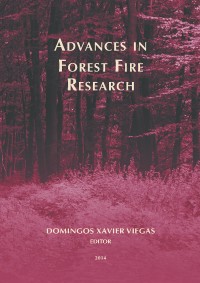Please use this identifier to cite or link to this item:
https://hdl.handle.net/10316.2/34328| Title: | Fuel types identification for forest fire risk assessment in Bulgaria | Authors: | Velizarova, E. Stankova, T. Glushkova, M. Xanthopoulos, G. Konstantinov, Vl. Dimitrov, D. N. |
Keywords: | Forest fuels;Fuel type;Fire behaviour prediction | Issue Date: | 2014 | Publisher: | Imprensa da Universidade de Coimbra | Journal: | http://hdl.handle.net/10316.2/34013 | Abstract: | Knowledge of the spatial distribution of fuel types is essential for implementation of the fire models predicting fire behaviour, severity and spread. In the present study, the most commonly used fuel classifications systems currently employed worldwide and the associated methods for generating a fuel type classification has been examined and compared. Based on a critical analysis of the state-of-the-art and on the main advances achieved in different classification systems, a simple quantitative methodology for development of a fuel type model has been developed. The results obtained showed that Austrian stands are characterized by a higher fuel load concerning both – live and dead biomass. The load of the dead material ranged from 13.3 t/ha to 47.0 t/ha and the load of the live fuel material was within the range 1.60 kg/m2 - 2.08 kg/m2. The density of the crown was also higher and equal to 0.354 kg/m2. The moisture content of the live leaves branches and dead material for Austrian pine and beech stands was relatively low in comparison with those for the other tree species. | URI: | https://hdl.handle.net/10316.2/34328 | ISBN: | 978-989-26-0884-6 | DOI: | 10.14195/978-989-26-0884-6_126 | Rights: | open access |
| Appears in Collections: | Advances in forest fire research |
Files in This Item:
| File | Description | Size | Format | |
|---|---|---|---|---|
| 978-989-26-0884-6_126.pdf | 1.75 MB | Adobe PDF |  |
Items in DSpace are protected by copyright, with all rights reserved, unless otherwise indicated.
